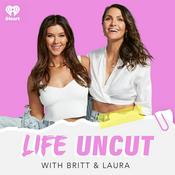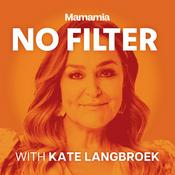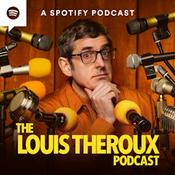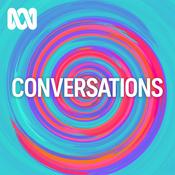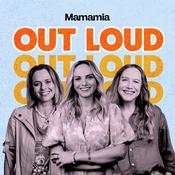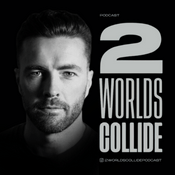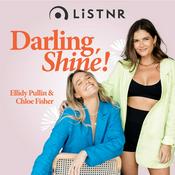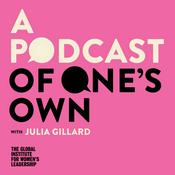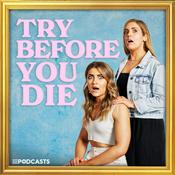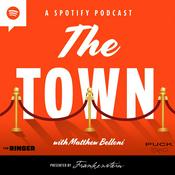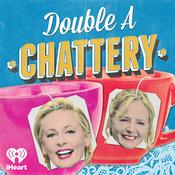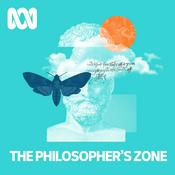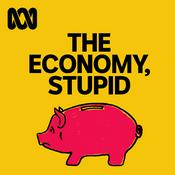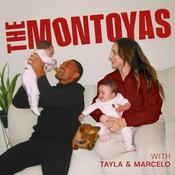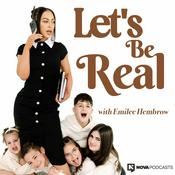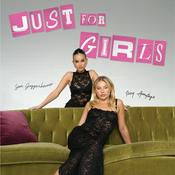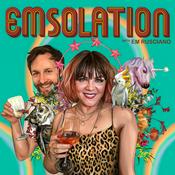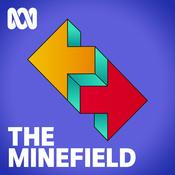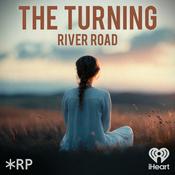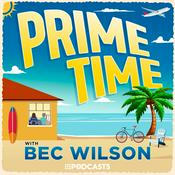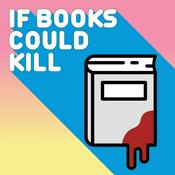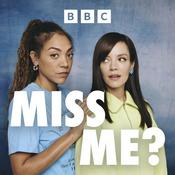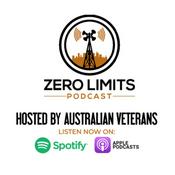6 episodes

Ralph
30/07/2020 | 39 mins.
Almost exactly a year after the birth and death of their first daughter, Wren, Kate Gudsell and Sam Arcus welcome Ralph into their family.Content warning: This podcast contains graphic descriptions that some people might find difficult.Almost exactly a year after Kate Gudsell and Sam Arcus lost their baby Wren, they were preparing to welcome their second daughter, Frida.Two weeks before the surgery date, they were told Frida was actually a boy."I was really upset," said Kate, "It sounds ridiculous, but for the last four and a half months, we'd been calling her Frida and I'd developed some kind of relationship with her. That really helped me deal with the loss of Wren."The birth experience was completely different to Wren's arrival into the world.This time around, Kate opted for a caesarean section."I can't help but draw a comparison to a butcher, which is horrible," jokes Kate, "I thought it would be cosier."Neither Kate nor Sam could relax until they heard their new baby wail, because when Wren came out she didn't make a sound."When he screamed both midwives burst into tears," said Sam.They called him Ralph.Kate, Sam and Ralph were home in time for Wren's birthday. It was both sad and bittersweet. "I remember being exhausted and so happy that we had our little baby home, but sad because we should have two babies with us. And relieved we had him," said KateShe the anniversary would have been awful without Ralph.The reality of being a parent has been challenging. "It took me a long time for it to become real," said Sam.The other thing Kate describes as "freaky" was that Ralph asleep looked exactly like Wren in her little woven basket just before she was cremated."It was nice, but it was also so heartbreaking," said Sam, "I had to push him to make him move because I couldn't see him still like that."Ralph is a toddler now. He plays with his toy digger by Wren's sign in the garden and talks to the kereru in the big tree.They also have another daughter. They have their Frida.The way Kate and Sam parent Ralph is heavily influenced by their experience with Wren."It has fundamentally changed how we see things," said Sam. Kate said she's in fear of so many things and really has to keep herself in check."There's just a world of possibilities, of terrible things happening to them. It's like, how do you not let that overwhelm you?"…Go to this episode on rnz.co.nz for more details

Frida
29/07/2020 | 38 mins.
Kate and Sam are pregnant again. Another girl. But this pregnancy comes with all the baggage from the first. In this episode, Kate and Sam prepare for the arrival of Frida.Content warning: This podcast contains graphic descriptions that some people might find difficult.After losing their first child, Wren, just six days after she was born, Kate and Sam are now pregnant again.The new baby is due nearly a year to the day of Wren's birth and death."We've watched Frida grow from a microscopic heartbeat," said Sam."We've done everything we can possibly do and talked over every possible scenario," he said, "It's hard because our frame of reference is not good to begin with."Debbie Watkin, who went on to have two children after losing her first daughter, Terrill talks about intergenerational trauma.She says her son, Walter (left) and second daughter Rhiannon carry the scars of her firstborn."The children I went on to raise are sadly products of me as a grieving mother."Kate and Sam have found losing their baby Wren a very isolating experience. "It's really lonely, even with the most understanding friends and family," said Kate.Sam echoes this: "People are lovely. You can see the grief in your friends and family for about two weeks and then it sort of disappears out of people's lives, but it doesn't disappear out of our life."Vicki Culling, who's daughter Aster was stillborn, believes the death of a baby is one of our last taboos. She said thirty years ago cancer was the C-Word, but now we can say its name. She wants the same for the death of a baby, but things we're probably 5 or ten years away from that."It's about letting people know that babies die. It does shake the foundations of your life. It makes you a different person. It's fine to love that baby in absence."Kate says she doesn't have the joyfulness in her second pregnancy, but she loves feeling Frida kick.Sam and Kate can't bring themselves to prepare for the new baby's arrival. They know they have everything, because it was ready to go the first time around. But they don't want to go through the pain of packing everything away again, like last time - when they didn't get to bring their baby home.If you need to talk, free call or text 1737 any time to speak to a trained counsellor.For other support:Wheturangitia - https://wheturangitia.services.govt.nz/Sands - http://www.sands.org.nz/Go to this episode on rnz.co.nz for more details

How Do You Go On?
28/07/2020 | 37 mins.
How do you go on after you've lost a child? Kate and Sam and three other mum's who also lost babies describe different grieving processes, the deep lows and the things that lightened the burden.Content warning: This podcast contains graphic descriptions that some people might find difficult.Kate Gudsell and Sam Arcus gave birth to their first child, a girl they named Wren, on September 8 2016. She lived for just six days.As they struggled to come to terms with it all, Kate went back to work."I remember Sam drove me in," she said, "Even now I feel anxious thinking about it. It was horrible."She said some people were amazing, like the bulletins editor who said: "I'm pleased you're back. But I'm really sorry for the reason you're back."But others were not so good.Debbie Watkin is a psychologist who has spent much of her career working in the field of family and child trauma, in Auckland.In 1991, her first child, Terrill, was stillborn. "She was tiny. She was beautiful, but she was still and silent."Debbie wrote the handbook Empty Arms which has been used in Auckland hospital.Debbie doesn't believe it's time that heals the wounds, but the people around you.She said today's western society is all about making things better. It's a don't just sit there, do something, culture."I think we have to flip it to 'don't just do something, sit there'," she said, "The people who really made a difference were the people who just sat with me, who didn't even often use words, who just showed kindness."He aha te mea nui o te ao? He tāngata, he tāngata, he tāngata.This is a Māori whakataukī or proverb which means: What is the most important thing in the world? It is the people, it is the people, it is the people.Pania Mitchell said Māori culture is all about connecting to people who have passed away.Her son Manaia was born on December 30 2007. A nurse picked up a clicking noise in his chest. His heart wasn't pumping correctly. Manaia underwent surgery, but it was too much for his little body. He died on January 1, 2008.She took Manaia home where she could share him with her family. "We did processes, like karakia and I had a kaumatua come to the house." "When you can't think straight it's very comforting to fallback on those rituals and have people around who know the same things and everything can click into place to help you," said Nicola Bright…Go to this episode on rnz.co.nz for more details

A Father's Grief
27/07/2020 | 35 mins.
Kate and Sam lost their beautiful baby girl, Wren just six days after she was born. Their grief is shared, but their experiences quite different. This episode covers the loss of a baby through a father's eyes.Content warning: This podcast contains graphic descriptions that some people might find difficult.When things began to go wrong during the birth of their baby girl, Kate Gudsell was rushed to hospital in an ambulance while Sam Arcus had to drive himself."I just remember screaming and praying the whole way," said SamWren Sarah Thunderstorm Arcus lived for six days. "The greatest experience of my life was holding her," he said, "(And) the hardest experience."One of the motivations for Kate to take part in this podcast was because she saw that there wasn't a lot of support for men."When Wren died all the official support networks, and unofficial, were really about how was I doing? And not really how was Sam doing?" she said.Lucy and Karl Emson lost their baby girl, Harriet, after she was starved at oxygen at birth. Harriet lived for just 36 hours.Karl found the loss particularly hard.He felt a lot of the help was geared towards a woman who'd lost a child with less emphasis on how the dad might feel.He said there's a very real possibility that his older daughter Clara is the only reason he's still alive.Lucy and Karl have had two more beautiful daughters since Harriet - Eleanor and Madeleine.Karl struggles a little with Western society's reaction to his grief."There's still that perception out there I suppose that men don't cry," he said, "Some of my happy memories of Harriet bring on tears. And that's okay."He believes society is changing and those ideas are breaking down."One thing Harriet's done for me is put things in perspective," said Karl. And if people have a problem with him showing his emotion, "that's their problem".Sam had given up his job and was planning to care for Wren. But without a baby to look after, he found himself at a loss once Kate returned to work. He turned to his love of sculpting metal."I wanted to make something that was strong and permanent and tangible," he said, "The idea was to make something out of steel. So it would rust. And it would change over time. That's one thing that I found, that I still find, really hard is that we never got to watch Wren grow or reach milestones or change and develop.""She is the girl that made me a father. Six days changed my life. I'll never forget her."…Go to this episode on rnz.co.nz for more details

The Thunderstorm
26/07/2020 | 31 mins.
Kate Gudsell and Sam Arcus had a trouble-free pregnancy, but a thunderstorm was quite literally brewing as Kate went into labour. This is a very personal story of grief and loss, but most importantly, love.Content warning: This podcast contains graphic descriptions that some people might find difficult.Kate Gudsell and Sam Arcus were married in November 2015. Sam scrubbed up smart in a kilt as a nod to his heritage from the Shetland Islands, Kate was in a vintage dress by 1970s Hollywood designer Holly Harp. She had little white roses and rosemary in her hair, and it looked like her mothers' had been on her wedding day.By the New Year, Kate was pregnant with their first child. A girl.Wren was born on September 8 2016, in the middle of one of the worst thunderstorms of the year. "It was a freezing, freezing cold day," said Kate.Wren was supposed to have been born at the birthing unit at Kenepuru Community Hospital in Porirua, but during labour the midwives struggled to find a heartbeat. Kate was rushed to Wellington Hospital by ambulance. Sam had to follow in the car.Wren was born at 2:41 in the afternoon. She didn't make a sound when she arrived and was quickly whisked off to the Neonatal Intensive Care Unit (NICU) while Kate and Sam struggled to make sense of what had just happened."The baby comes out and you hear this wail of like, here I am. And not ever hearing that is the most devastating thing in the world," said SamKate and Sam were only allowed fleeting touches of their beautiful wee daughter as doctors didn't want her to be stimulated.On the fifth day, one of the doctors called Kate and Sam into a private room. "As soon as he shut the door, I knew," said Kate.They were given the heart-breaking news that their daughter was unlikely to survive and made the gut-wrenching decision to switch off her life support.Wren Sarah Thunderstorm Arcus lived for six days. A post-mortem revealed she had been starved of oxygen for between five to 20 minutes at some time during the birth. Kate and Sam had to leave hospital without their first-born child."No one ever prepares you for what it might feel like to walk out the hospital without baby," said Kate.If you need to talk, free call or text 1737 any time to speak to a trained counsellor.For other support:Wheturangitia - https://wheturangitia.services.govt.nz/Sands - http://www.sands.org.nz/Go to this episode on rnz.co.nz for more details
More Society & Culture podcasts
Trending Society & Culture podcasts
About The Unthinkable
Listen to The Unthinkable, Life Uncut and many other podcasts from around the world with the radio.net app
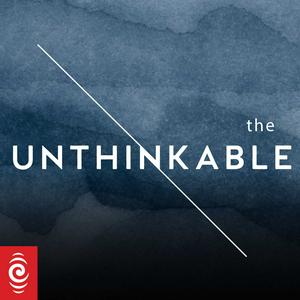
Get the free radio.net app
- Stations and podcasts to bookmark
- Stream via Wi-Fi or Bluetooth
- Supports Carplay & Android Auto
- Many other app features
Get the free radio.net app
- Stations and podcasts to bookmark
- Stream via Wi-Fi or Bluetooth
- Supports Carplay & Android Auto
- Many other app features


The Unthinkable
download the app,
start listening.
